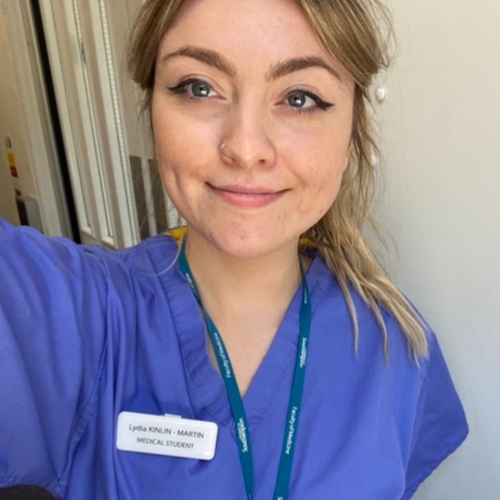21 July 2025
|3 minutes
Managing money as a medical student

In this blog, current final year student, Lydia Kinlin-Martin, shares her top tips for managing money while studying medicine at university…
I think we can all agree that one of the biggest challenges that comes with being a medical student is managing money. Studying medicine is a big financial commitment for many of us.
Whether you’re budgeting your student loan for the first time, saving up for your elective, or like me, studying medicine as a second degree, at some point we will all be wondering if we really should buy those fancy personalised scrubs or hold back the pennies for the next train home.
I’m a final year medical student in Southampton and, like I mentioned, I’m studying medicine as a second degree. For the last five years I have mostly self-funded due to the lack of tuition fee loan given to second degree medics.
Over the last few years, I’ve developed a few strategies to help me stay afloat financially while studying. Here are my top tips for managing money as a medical student:
Get clear on your income and outgoings
The first step is knowing exactly what’s coming in and going out each month. Whether it's your student loan, part-time job income, bursaries or help from family, keep track of it. Use a simple spreadsheet or budgeting app to help.
Make a monthly budget and actually stick to it
Divide your spending into essentials (rent, bills, food) and non-essentials (socials, coffee, take-aways and eating out). Give yourself realistic limits for each and check in weekly to stay on track.
Meal prep is your best friend
Cooking in bulk saves time, money and stress. Having meals ready to grab and go will help you resist the temptation to impulse buy expensive hospital meal deals during longer days on placement. Bonus points if you get batch cooking with your housemates!
Take advantage of student discounts
Don’t underestimate how much you can save with a student card. Look for discounts on travel (16-25 Railcard), stethoscopes, tech, gym memberships and even coffee shops near the hospital.
Some places don’t advertise their student discount so it’s always worth asking. It’s also worth looking out for discount codes for MCQ question bank websites that are usually circulated in group chats or on social media.
Apply for bursaries and grants
Many med schools and charities offer bursaries for students in financial hardship, especially those doing medicine as a second degree.
It’s worth spending some time searching every corner of the internet – you might be eligible for more than you think. These grants and bursaries can have annual deadlines so it’s worth looking well ahead of time.
Pick up flexible part-time work and use those long summers wisely!
The perfect job at medical school will be one that you can fit into your already busy schedule: bank healthcare assistant jobs, tutoring, or even freelance work (if you have a skill like writing or design) can bring in extra cash without derailing your studies.
Restaurant/bar work can also be an option – but be upfront with your employer about the demands of your course as you will likely need time off during exam seasons.
Think ahead to your elective
It might be early days, but if you’re lucky enough to be able to do an elective as part of your fourth or final year and you are keen to try a placement abroad, it’s best to start saving early.
Also, do your research into any potential bursaries, essay prizes or university funding that might be available. The deadlines are usually strict so try to keep your finger on the pulse with these!

By Lydia Kinlin-Martin
Final year medical student
